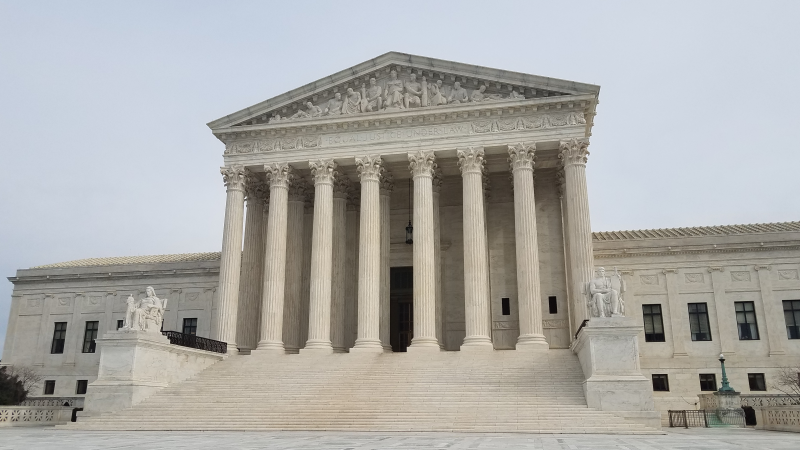Ward Connerly 'optimistic' now that SCOTUS will hear case that may end affirmative action
President of American Civil Rights Institute Ward Connerly says the Supreme Court has increased problems with affirmative action.
Ward Connerly, president of the American Civil Rights Institute, says he's "optimistic" now that the U.S. Supreme Court will decide a case that may end the practice of affirmative action.
Connerly has been speaking out against affirmative action for years. Back in 1996 he was one of the leaders of California Proposition 209, which added Section 31 to California's Declaration of Rights and said that "the state cannot discriminate against or grant preferential treatment on the basis of race, sex, color, ethnicity, or national origin in the operation of public employment, public education, and public contracting."
In January, the Supreme Court announced that it would hear a case that may end affirmative action. The case challenges the admissions policies of Harvard University, which uses affirmative action, and is being brought by a group called Students for Fair Admissions Inc., according to Syracuse Law Review.
"The Supreme Court has increased our problems," Connerly said on the John Solomon Reports podcast. "In 2003, we went to the court about affirmative action and the court allowed the use of race and said that it was a matter of a compelling state interest — diversity that is. And that ruling has allowed universities to use race in a very perverse sort of way."
Connerly was referring to the 2003 Grutter vs. Bollinger decision, which upheld the University of Michigan law school's use of affirmative action.
Connerly is encouraged that SCOTUS is taking up the Harvard case.
"I believe that they would not have taken this case had they not felt that the 2003 Grutter case was wrongly decided," he explained. "And they now have the votes to do the right thing," adding, "I'm optimistic that we're going to get a good decision."
"The court is just as political in many ways as any other institution," Connerly continued. "These are human beings who arrive at the court because of political considerations. And we now have a court. The one big thing that we can say is 'Thank you' to former President Trump and Mitch McConnell. For we now have a court that is morally positioned to do the right thing on this issue."















